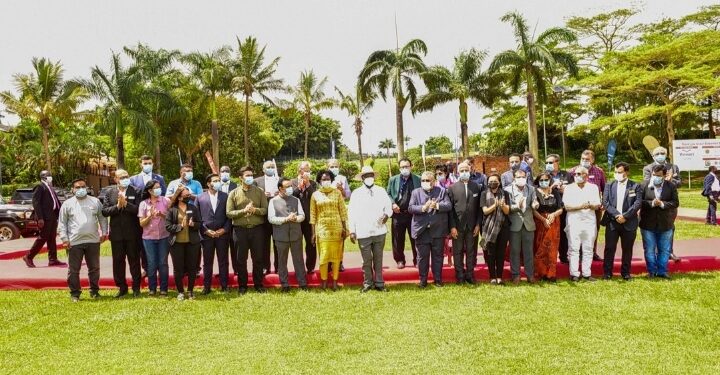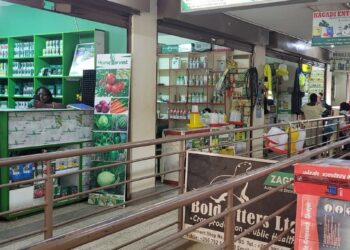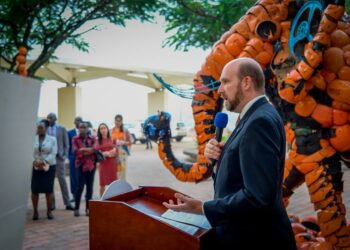President Yoweri Museveni is optimistic that Uganda’s rich raw material base will make it a first world economy once they’re fully exploited, now that the country continues to attract investors who are willing to support his value addition strategy.
“This economy can quickly become a first world economy. It is now entering the middle-income level, but it can easily go faster, why? Because the raw material base is already big,” H.E Museveni said, mentioning materials like coffee, which is fetching Uganda, 900 million dollars with potential to bring in 10 billion dollars. He added that Uganda is also doing well on steel production.
“For a long time, we didn’t have investors in steel but now they’re rushing to develop a steel industry inside the African continent so that we don’t have to get steel from China, Ukraine or India,” he added.
While addressing the Lohana International Business Forum (LIBF) at Munyonyo Commonwealth Resort Hotel in Kampala, the President highlighted seven (7) key clusters of raw material base in Uganda ready for value addition.
These include; Agro-processing (fruits…oil seeds, agricultural products), Minerals (iron ore, steel, copper, phosphates, cobalt, gold, Nicol, lithium and niobium), Fresh water resources to facilitate fish farming, Forest products (furniture, ceiling boards, paper Industry), Knowledge sector like the automobile industry, the services sector and the Pathogenic economy.
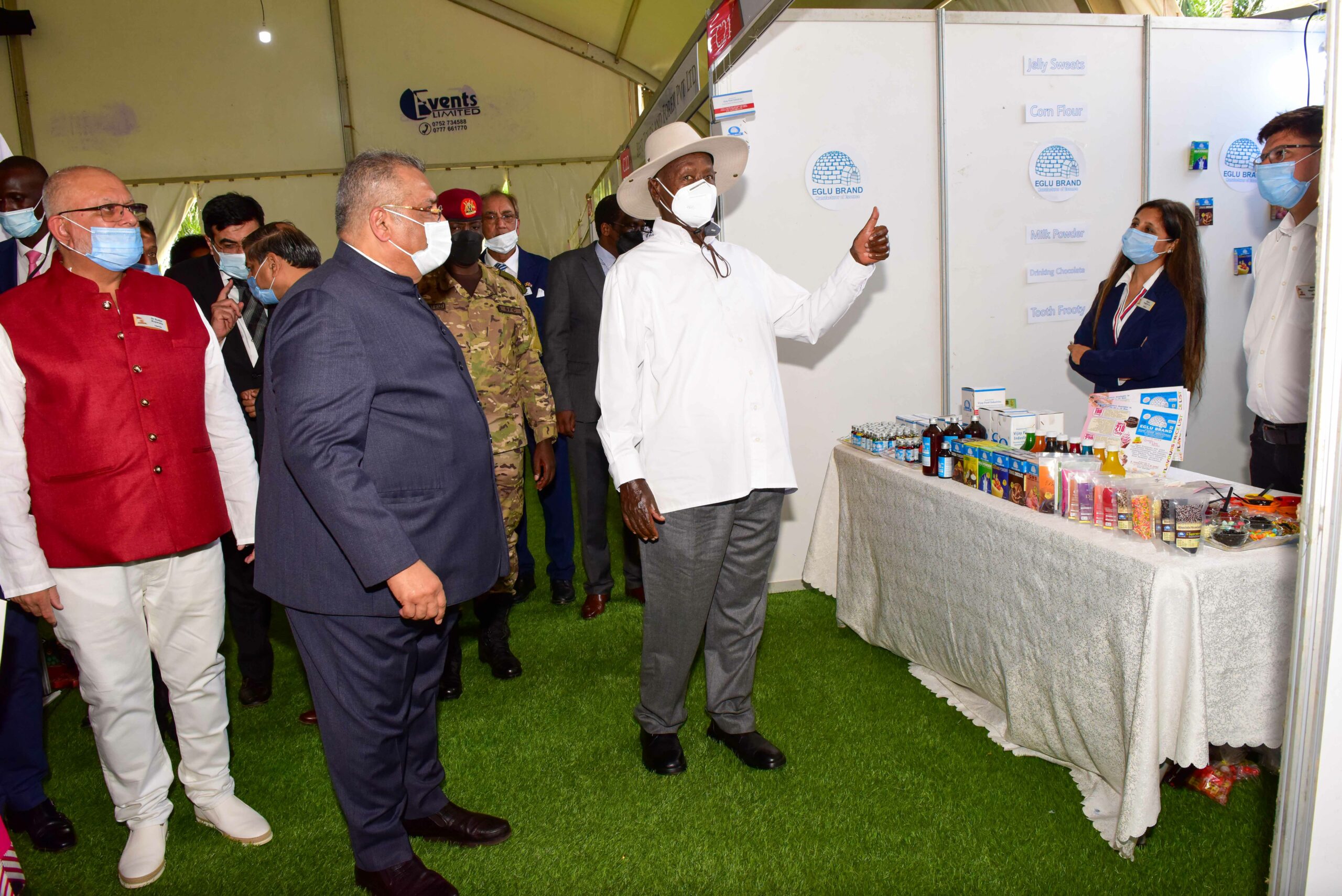
“These human diseases are a problem but also a very big opportunity. Our scientists here discovered one substance called Covidex which cured many people of corona. Uganda only lost 1,600 people to Corona,” he added.
About the automobile industry, the President told the meeting that Uganda is on the right track when it comes to production of motor vehicles and will soon stop importing from Japan and other countries. He said the cars manufactured in Uganda are already on the road.
“We have designed our own buses and electric cars. I don’t want to hear about assembling, that one I will not accept. We must manufacture and fabricate here not assembling,” the President said, adding that part of the problem of Africa has been confining ourselves to producing raw materials only and not adding value.
He gave an example of coffee whose global business in the world is 460 billion dollars but the coffee producing countries only share 26 billion dollars.
“When we produce and sell a kilo of coffee beans, we get 2.5 dollars per kilo. But when somebody roasts and packages that same amount of coffee, gets 25 dollars from our product and all the jobs are exported,” H.E Museveni further said. He added that the same applies to textiles which has about 7 levels of activities during production namely: Spinning, weaving, printing colours, tailoring etc.
He told the Lohana business community that the struggle of NRM to wake up Ugandans to stop working only for consumption but also for money is moving well and expressed confidence that the coming together of Africa that had been fragmented for a long time will ensure a ready market for the products.
“Africa is big but fragmented politically, that’s why we revived the East African Community. We now have a ready market of 300 million people. Recently we were in Algeria, and they say Ugandan milk is the best and much better than they were getting from Ukraine and Russia and they’re ready to take Ugandan powdered milk that’s what they like most,” the President added.
The President further welcomed Lohana businessmen to Uganda, saying the Asian people played a positive role in boosting Uganda’s trade.
“In my village of Ntungamo, we had 4 Indians and two Arabs, and our relationship was symbiotic. For us we’re farmers and cattle keepers and Indians were traders, bringing what we needed from far away and buying our products. I used to sell milk to them in 1952,” the President noted, adding that it was therefore rubbish for people like Idi Amin who he termed as Parasites who have never been involved in wealth creation to chase Asians from Uganda.
The Global chairperson of Lohana international Business Forum Mahaparishad Satish Vithalani and the Chairperson board of trustees of Lohana community in Uganda Dr. Sudhir Ruparelia told the President that his good leadership and policies in place, Uganda today offers a tremendous amount of stability, security and confidence for long term development and thanked him for returning the Asian properties.
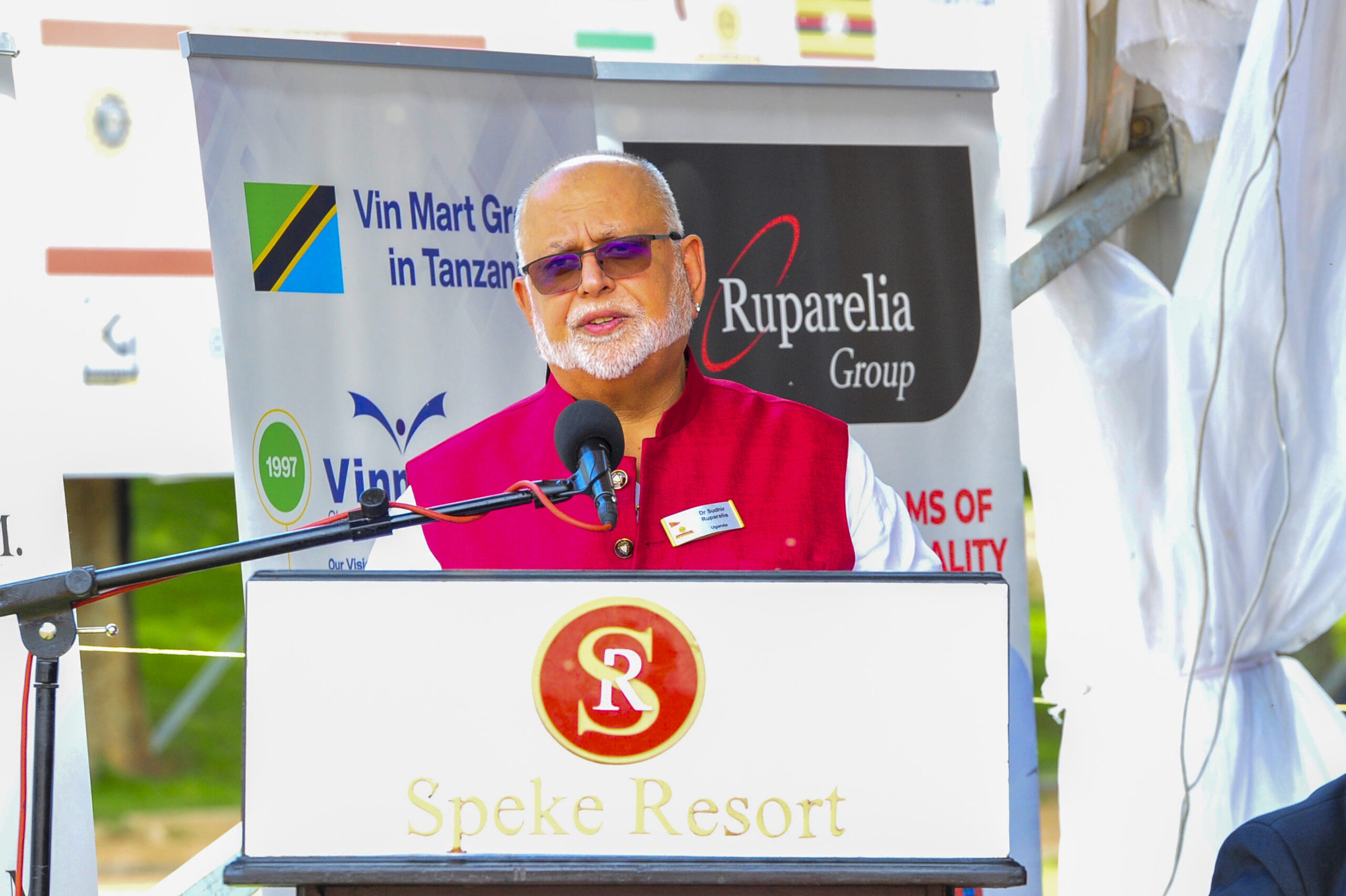
The Minister for Finance and Economic Development in charge of investment Evelyn Anite thanked President Museveni for always being available to speak to investors, adding that Uganda now boasts of over 1900 factories owned by Indians in Uganda and 900 by the Chinese.
She informed the president that they have interested the Lohana Business Community to invest in various virgin ventures including pharmaceuticals and edible oil.
“Today, we import pharmaceutical products worth 100M dollars and we import edible oil worth 10 million dollars every year. We have interested them to come invest in the pharmaceuticals sector and edible oil so that we avoid importation and improve our exports. And your Excellency we told them that your policy is that for every product manufactured in Uganda will be bought by Ugandans,” Minister Anite said.
The President also flagged off 50,000 uniforms manufactured in Uganda going to the Republic of Equatorial Guinea.
According to Mr. Odrek Rwabwogo, the Chairman of the Presidential Advisory Committee on Export and Industrial Development (PACEID), deals worth billions of dollars have been reached with different companies at the sidelines of the forum in the fields of; Agriculture, Pharmaceuticals, Bio refinery and Mineral processing.
The Lohana International Business Forum dubbed “Africa Calling” attracted over 750 business elite and investors from 139 cities, representing 22 countries and from 29 businesses and services sectors from the influential global Lohana Indian community.
Some of the countries represented were; India, Kenya, UK, Tanzania, United Arab Emirates UAE, USA, DRC, Canada, Portugal, Oman, Angola, Mozambique, South Sudan, Germany, South Africa, Madagascar and Uganda.
The forum showcased opportunities for business and investment in Uganda and provided a platform for Lohana delegates to promote their companies to the Ugandan business community.
In Uganda, the Lohana Community form one of the strongest investment and business blocs and includes luminaries like Ruparelia Group (real estate and hospitality), Madhvani and Mehta (sugar) and House of Dawda (processed foods), amongst others.
They form part of the 27,000-strong Indian community that dominates trade, real estate and manufacturing in Uganda.
Do you have a story in your community or an opinion to share with us: Email us at editorial@watchdoguganda.com


